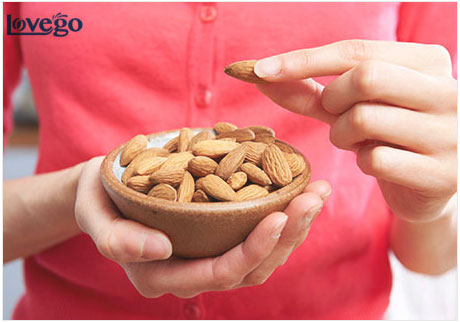High Energy Foods To Beat COPD Fatigue

Living with COPD may mean that you have to go slow on physical activities. This is because breathing is much harder and you have to pace yourself to keep from feeling fatigued. Because your body has to exert more effort to breathe, the muscles that support respiration may need to use up about 10 times more calories to work properly.
Though this may mean that you have to consume more calories, too many from the wrong sources may lead to unhealthy weight gain that may make COPD even more challenging. Thus, it’s important to know which foods can give you just the right amount of energy without being unhealthy for you. Here are a number of foods that you can eat as snacks or incorporate into your meals for that much-needed energy to get you throughout the day without feeling fatigued.
Nuts and Seeds. Popularly known for being healthy snacks, nuts and seeds like cashews, almonds, hazelnuts, pumpkin seeds and sunflower seeds are packed with protein that provides extended energy to beat off fatigue. Just a handful of these nuts and seeds in between meals can help you feel full and energized for longer, unlike snacks made up of refined carbohydrates whose energy boost only lasts for a few minutes and leaves you feeling sluggish afterward. Additionally, nuts and seeds contain magnesium that helps fight fatigue buildup in your muscles. Aside from eating them whole, a lot of nuts, like almond and cashew, can be made into highly satisfying nut butters that make for yummy sandwiches!
Cheese, milk and other dairy items. Cheeses and milk are excellent sources of calcium, protein, and a bit of fat, along with other nutrients to keep you from feeling tired. Dairy items are calorie-dense, meaning that they greatly help you meet the energy and nutrient requirements you need throughout the day. Dietitians usually recommend a higher caloric intake for COPD patients, and taking in milk and dairy can help you meet such requirements more easily. Additionally, calcium helps support and stabilize bones. Instead of spreading jam onto your bread, use a slice of cheese instead. You can also use milk to make your smoothies creamier, at the same time getting more energy from your drink.
Beans and legumes.Beans are power-packed with fiber and protein, making them an ideal addition to your daily food items, either as a snack or part of your meal. The fiber they contain also helps regulate your blood sugar levels, preventing the extreme fluctuations that sweet, sugary foods can cause. Aside from this, legumes also contain zinc, which experts have found to be an essential part of a COPD diet that can help improve symptoms. They are also packed with B vitamins, iron and potassium. Peas, black beans, lentils, and other types of legumes are inexpensive, offer diverse choices, and can easily be added as part of your meals.
Yogurt.Aside from milk and cheese, yogurt is an excellent source of calcium. Plus, the probiotics it contains act as important digestive aids to break down food for easy absorption of nutrients and minerals. Yogurt is also readily digested, giving you quick energy burst after consumption. You can top your yogurt with fresh fruit slices, or add it into your smoothies and shakes for an extra source of nutrients.
Spinach. This leafy green food may be unassuming, but is quite a good source of iron. Lack of iron can result to frequent fatigue and sleepiness, thus, a good COPD diet should supply you with adequate amounts of this mineral. Spinach contains iron together with Vitamin C, which work together for better absorption into your system. It also contains a great deal of Vitamin K, folate, magnesium and B-vitamins. Add some spinach to eggs, take it as a salad snack, or saute it with onions as a simple side dish.
Eggs.This very versatile food is usually a staple at every home, and why not, as it provides a great deal of protein for lasting energy. Eggs also contain a variety of B-vitamins, phosphorus and selenium. So unless you’re allergic to eggs, they are actually a good source of energy and can be added to almost every meal.
Oatmeal. Throw out those sugary cereals and switch them up with oatmeal. Oatmeal’s unique characteristics don’t give you the extreme blood sugar spikes and the sugar crash that comes after consuming refined carbohydrates. This is because oatmeal contains high amounts of fiber that is digested slowly and makes you feel fuller for longer. Add some milk and fruit slices to that oatmeal bowl and you’ve got a filling snack to keep fatigue at bay!
Knowing the right foods that help give your lungs and muscles the energy they need to function optimally can help ease the difficult symptoms that come with COPD. Once you start adding the foods above to your snacks and meals, you’ll notice that you feel more energetic throughout the day and ready to do the tasks at hand. You’ll also be able to free yourself from feeling sluggish and fatigued at certain points during the day. So, whether you’re home or going grocery shopping, be sure to keep a high-energy snack with you at all times so you’ll be able to keep fatigue from beating you up!
Do you have other high-energy foods that you recommend? What are your go-to foods for optimal energy? We’d be glad to hear about them.



